Preparation and documentation can make an insurance audit go smoothly
The word audit is nearly enough to send shivers down people’s spines, especially if you’re unlucky enough to have experienced a tax audit. In the world of commercial insurance, audits happen nearly every year for many businesses, and sometimes one business will have two audits in one year!
Audits in the insurance world can not be very enjoyable either, but they typically aren’t as bad as tax audits. The point of an insurance audit is to determine whether your business overpaid or underpaid for the year’s insurance. This could be a good thing because there’s a chance you can receive money back if you overpaid. The flip side, of course, is that many businesses underpay in a given year and then are forced to pay an extra insurance premium at the end of the policy period.
Part of the reason that insurance companies conduct audits on businesses is to make sure the proper coverages and rates are in place.
For example, a company that goes from being a $1 million business one year to a $20 million business in the span of two or three years will require a different insurance program than the one they originally signed up for. The risk is greater for a loss, so the rates need to be different. The company may also have expanded their operations and do things today that are different from what they did a few years ago, which would require different insurance coverages.
In commercial insurance, audits typically happen on two common policies: the general liability insurance policy and the workers’ compensation policy.
General Liability Audits
General liability rates depend on the type of business you have. Typically, general liability rates are determined by gross sales or employee payroll. If your business isn’t engaged in selling, then you may not get an audit, if for example you are a landlord who owns multiple commercial properties.
For businesses engaged in selling, insurance companies will want to look at your actual sales at the end of the year and marry that with the projected sales at the beginning of the year. If you have the proper paperwork in place already and have tracked your sales each month, then the audit shouldn’t be too complicated of a process. If your actual sales were much lower or higher than what you’ve been paying for throughout the year, then you’ll either receive money back or will have to pay extra to make the numbers match.
Workers’ Compensation Audits
Workers’ compensation rates and audits are based on your payroll. Your workers’ compensation audit will be based not just on your actual end-of-year payroll, but also on what classifications your employees fall under. For example, you may have office or clerical employees, which would be one set of rates. If you hired a few new salespeople, that would be a different classification and rate that the audit would uncover.
Similar to the general liability audit, your workers’ compensation audit will result in a number that may be higher or lower than what your premiums were based on, and will result in either a bill or money back.
Key Takeaway
Insurance audits don’t have to be the terrible event that they are often made out to be. As long as your business is keeping thorough documentation of sales and payroll, it shouldn’t be too bad of an experience.
We will walk you through your business audit, reach out to us!


